Module 1
The Present Simple (affirmative , negative and question)
Present Uses
1: We use the present simple when something is generally or always true.
People need food.
It snows in winter here.
Two and two make four.
2: Similarly, we need to use this tense for a situation that we think is more or less permanent. (See the present continuous for temporary situations.)
Where do you live?
She works in a bank.
I don't like mushrooms.
3: The next use is for habits or things that we do regularly. We often use adverbs of frequency (such as 'often', 'always' and 'sometimes') in this case, as well as expressions like 'every Sunday' or 'twice a month'. (See the present continuous for new, temporary or annoying habits).
Do you smoke?
I play tennis every Tuesday.
I don't travel very often.
4: We can also use the present simple for short actions that are happening now. The actions are so short that they are finished almost as soon as you've said the sentence. This is often used with sports commentary.
He takes the ball, he runs down the wing, and he scores!
*Form:
Sub + v(base) + C. (For plurle subject) they / you / we / I
They play out.
Sub + v(s/es) +C. (For singular subject) she / he / it
Salma goes to the school everyday.
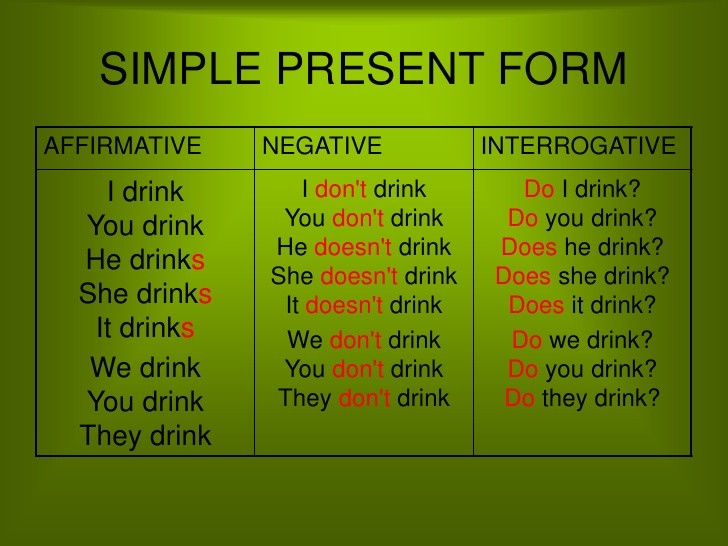
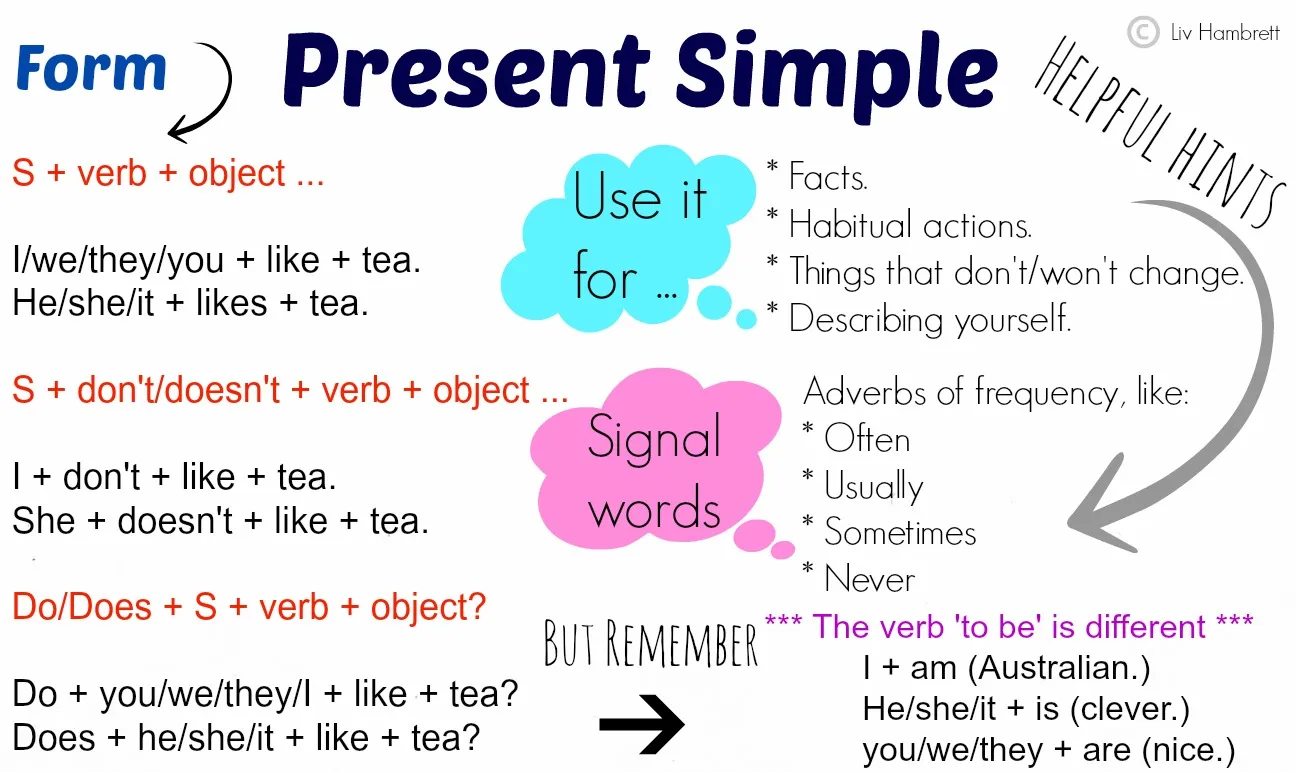
*************************************************
The Present Simple (affirmative)
SB page 7 / exercise 1:
1 Complete this paragraph with the verbs in the correct form.
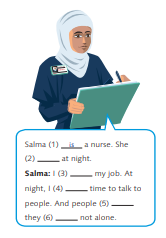
| feel / like / work / have / be / be |
The answer: 1. is; 2. works; 3. like; 4. have; 5. feel; 6. are
********************************************
SB page 7 / exercise 2:
Listen and put these verbs in the corresponding group.
| hears /takes /gets /tells / closes / checks / matches / arrives / prints |
Remember:
Pronunciation rules: • The 3rd person -s of verbs ending in voiced sounds (e.g. /b/, /d/, /g/, /v/, /l/, /m/, /n/, /r/, all vowels) is pronounced /z/.
• The 3rd person -s of verbs ending in voiceless sounds (e.g. /p/, /t/, /f/, /k/) is pronounced /s/.
• The 3rd person -s of verbs ending in sounds like /z/, /s/, /dZ/, /∫/, /t∫/, /ks/ is pronounced /iz/.
The answer:
/z/ hears, tells, arrives
/s/ takes, gets, checks, prints
/iz/ closes, matches
***************************************
The Present Simple (negative)
Form : Sub + don't/ doesnt + v (base)
Remmember: don't : for plural
doesn't : for singular
1.She does'nt eat fish.
2. We don't wear watches.
*************************************************
SB page 7 / exercise 4:
4 Complete the sentences about Salma in the tables with do not, does not, is not and are not.
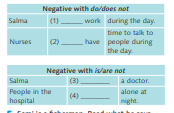
The answer: 1. does not; 2. do not; 3. is not; 4. are not
****************************************
SB page 7/ exercise 5:
5 Sami is a fisherman. Read what he says about his job, and then rewrite this paragraph with the correct form of the verbs.
| Hi! I’m Sami! I (1) be an engineering student in California, but I (2) work as a fi sherman during the summer. You (3) not need a lot of experience to be a fi sherman on a fi shing boat. People (4) think that a good fi sherman (5) not get seasick. But it (6) not be true! |
The answer: Hi! I’m Sami! I am an engineering student in California, but I work as a fi sherman during the summer. You do not need a lot of experience to be a fi sherman on a fi shing boat. People think that a good fi sherman does not get seasick. But it is not true!
************************************
The Present Simple (interrogative)
*Form : Do / Does +sub + v(base) +C.
1.Do you like eating out?
2. Does Sam go watch horror movies?
SB page 8 / exercise 6:
6 Ask Sami about his job. Complete the tables with do or does.
The answer: 1. Do; 2. Does; 3. does; 4. Do
****************************************
*Remember : be = is/am/ are
Negative : isn't / am not / aren't
SB page 8 / exercise 7:
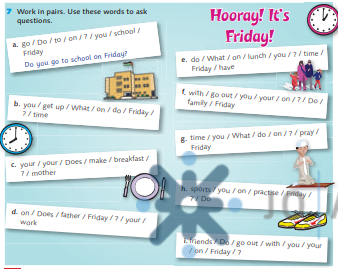
The answer: a. Do you go to school on Friday?
b. What time do you get up on Friday?
c. Does your mother make your breakfast?
d. Does your father work on Friday?
e. What time do you have lunch on Friday?
f. Do you go out with your family on Friday?
g. What time do you pray on Friday?
h. Do you practise sports on Friday?
i. Do you go out with your friends on Friday?
*************************************************
SB page 8 / exercise 8:
▼ Over to you . . .
8 In pairs, ask and answer the questions in exercise 7.
Then, write sentences saying what you do and what your friend does on Friday.
Include some incorrect information. Read your sentences aloud. Your classmates have to guess the false information.
Example:
I’m Abla. I’m a student. On Friday, my friend Nour and I don’t go to school. I always get up at 7 o’clock. My friend …
The answer :Students’ own answers